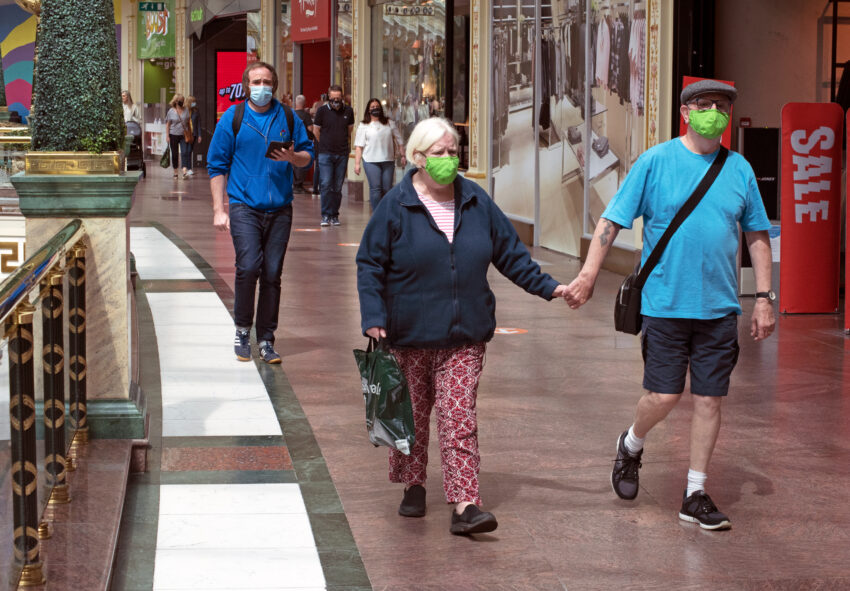Growth in spending on debit and credit cards slowed in January as Plan B restrictions kept consumers at home, new figures suggest.
Spending increased by 7.4 per cent in January compared with pre-pandemic levels in January 2020, the lowest level of growth since April 2021, according to data collected by Barclaycard, which records more than half of all transactions made in Britain.
Fuel spending rose by 6.7 per cent, its slowest pace since October as restrictions introduced in early December hit travel plans. The hospitality and leisure sectors suffered a decline of 6.3 per cent, but spending remained stable among younger age groups.
“January’s Covid restrictions, combined with the rise in the cost of living, clearly impacted consumer spending levels in January,” José Carvalho, head of consumer products at Barclaycard, said. “The lifting of Plan B restrictions should provide a welcome boost to many sectors, as workers travel back into the office.”
Those who did leave their houses to go shopping seemingly were keen to spend. Retail sales rose by 11.9 per cent in January compared with the previous year, exceeding the 12-month average growth of 10.9 per cent. Data from the British Retail Consortium and KPMG showed that sales were 7.5 per cent higher than pre-pandemic levels in January 2020, even after adjusting for inflation.
Helen Dickinson, the consortium’s chief executive, said that food sales had been lower than in previous months as customers returned to eating out at restaurants. “Consumers prioritised home purchases, boosting the sale of household appliances, electronics and homeware,” she said, adding that furniture had been “the standout performer in January”.
However, another survey suggested that confidence among shoppers sank to record lows last month. According to the Shopper Confidence Index from IGD ShopperVista, confidence fell steadily during January to -14 , from -9 in December. Shoppers surveyed said that they expected food prices to rise. The latest Monetary Policy Report from the Bank of England, which was published on Thursday, predicted that real incomes would decline by the largest amount in more than 30 years.


